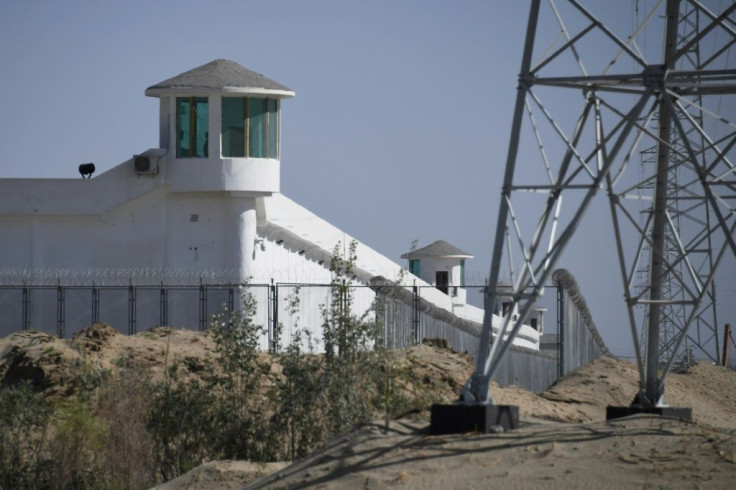Xi Urges Europe To 'Make Positive Efforts With China' In Merkel Call
President Xi Jinping told German leader Angela Merkel during a phone call Wednesday that he hoped Europe would "make positive efforts with China", Chinese state media reported, following an international row over the treatment of Uyghurs and other minorities in Xinjiang.
The call was Xi's first with a European leader since last month's tit-for-tat sanctions over allegations of human rights abuses in the Xinjiang region, which drastically soured relations between China and the EU.
"China-EU relations are facing a new development juncture, as well as various challenges," Xi was quoted as saying by the official Xinhua news agency, which added he urged the EU to make a "correct judgment independently".
China is worried by US efforts to shore up its allies across the globe -- including Europe -- as President Joe Biden seeks to counter Beijing's rising influence and defend a democratic liberal order that waned under the haphazard leadership of the previous Trump administration.
"It is crucial to firmly grasp the overall direction of China-EU relations' development... from a strategic perspective, mutually respect each other and eliminate interference," Xi was quoted as telling Chancellor Merkel.
The president added that China wishes to "put multilateralism into practice" with the EU, and cooperate with the bloc on issues including climate change.

"Strengthening China-Germany and China-EU cooperation can achieve meaningful great deeds. I hope that Germany and the EU can make positive efforts with China to add even more certainty and stability to this ever-changing world," he was quoted as saying.
China and the EU completed negotiations for a landmark trade deal in December, which has yet to be ratified by the EU Parliament.
However, the deal's future is uncertain after the EU imposed its first sanctions on China in three decades over Xinjiang, where up to one million Uyghur Muslim minorities are estimated to have been detained in internment camps by rights groups.
China hit back with wide-ranging sanctions on various European parliamentarians, academics and the German think tank MERICS -- Europe's largest.
Then, the EU, US, Canada and Britain imposed co-ordinated sanctions on Chinese officials allegedly involved in Xinjiang rights abuses, and China sanctioned further individuals and organisations from these countries.
Shortly afterwards, Swedish fashion giant H&M became the target of a nationalistic consumer boycott, after it vowed last year to avoid using Xinjiang cotton due to its alleged links with Uyghur forced labour.
© Copyright AFP 2024. All rights reserved.




















